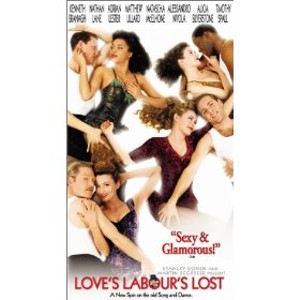Buddy's Place
The High Art of Low Comedy
"But, I know you’ll protest that Shakespeare’s language, though elegant on the page, becomes heavy and purple onscreen and that otherwise likable actors become bloated and declamatory when they’re forced to speak it."
Actually, I would argue the opposite: that, yes, Shakespeare's language is elegant, but on the page it reads rather heavily, so bogged down with words that have fallen out of favor (I suppose "cock-a-hoop" had to go if the OED was gonna make room for "thingamabob"). While I get a kick out of all those old words, it doesn't always make for an easy read, checking the footnotes every few lines... which is why Shakespeare feels so alive and so relevant when transposed to screen (and stage, of course). Hearing the cadences, coupled with visual cues, the language stops feeling faintly foreign.
The comedies, especially, I think, benefit from being loosed from the page. I wasn't very familiar with Shakespeare's comedies prior to this little experiment of ours (I've only read Much Ado About Nothing). After weeks of cramming the tragedies – one after another after another – all that murderous plotting and tortured speechmaking had sent me into something of a tailspin of dour, which is why it was such a blessed relief to watch two modern takes on the comedies.










